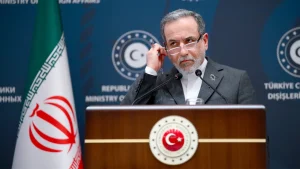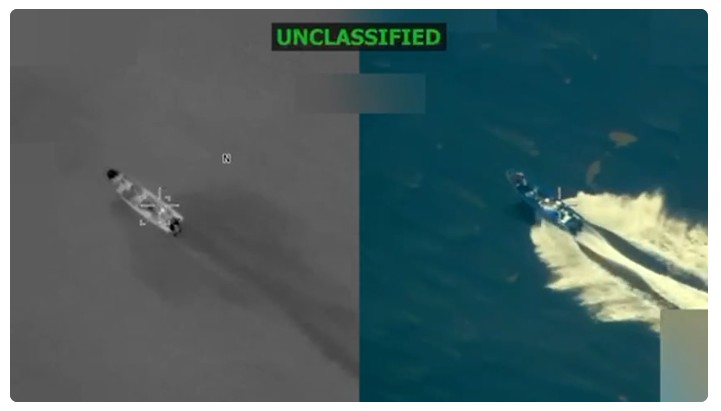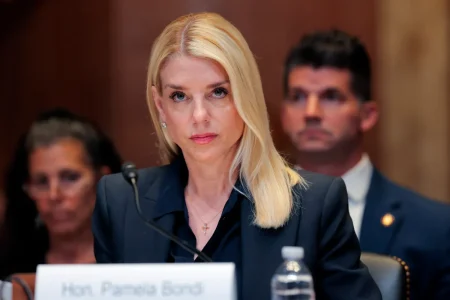Trump Announces Military Strikes Against Suspected Drug Traffickers
In a significant development that signals a hardline approach toward combating drug trafficking, former President Donald Trump shared video footage on his Truth Social platform of what he described as a “lethal kinetic strike” against a vessel in international waters. The operation, conducted within the U.S. Southern Command’s area of responsibility, reportedly targeted a boat connected to what Trump characterized as a “Designated Terrorist Organization.” This announcement, made on Friday, has drawn attention to the evolving tactics in America’s ongoing war against narcotics trafficking, particularly as concerns about fentanyl and other dangerous substances crossing into the United States continue to mount.
According to Trump’s post, intelligence confirmed the vessel was trafficking illicit narcotics and traveling along a known drug trafficking route with the intention of bringing harmful substances into the United States. The former president stated that the strike resulted in three fatalities aboard the vessel, while emphasizing that no U.S. forces were injured during the operation. His message concluded with an emphatic warning written in all capital letters: “STOP SELLING FENTANYL, NARCOTICS, AND ILLEGAL DRUGS IN AMERICA, AND COMMITTING VIOLENCE AND TERRORISM AGAINST AMERICANS!!!” This forceful rhetoric underscores the high-stakes nature of the ongoing battle against drug trafficking organizations that continue to transport dangerous substances across U.S. borders, contributing to the nation’s devastating opioid crisis.
In a follow-up announcement on Monday, Trump revealed that U.S. military forces had conducted a “SECOND Kinetic Strike” targeting what he described as “positively identified, extraordinarily violent drug trafficking cartels and narcoterrorists” in the same SOUTHCOM region. This second operation reportedly also resulted in three fatalities aboard the targeted vessel, with Trump again noting that no U.S. personnel were harmed. The consecutive nature of these operations suggests a potential shift toward more aggressive military engagement with suspected drug trafficking networks, raising questions about the strategic direction of counternarcotics efforts and the role of military force in addressing what has traditionally been treated as both a law enforcement and public health challenge.
The Pentagon has not immediately provided additional information in response to Newsweek’s inquiries about these operations. This lack of official confirmation or elaboration from defense authorities leaves several important questions unanswered regarding the specific intelligence that prompted these strikes, the exact nature of the organizations targeted, and whether these actions represent a new policy direction or are continuations of existing counternarcotics strategies. The decision to announce these military operations through a social media platform rather than through official government channels also represents an unconventional approach to communicating about sensitive military actions, potentially blurring the lines between official policy announcements and personal commentary.
These reported strikes represent what appears to be a significant escalation in the use of American military force in counternarcotics operations within the Western Hemisphere. Traditionally, while the U.S. military has supported drug interdiction efforts through intelligence sharing, surveillance, and other forms of assistance, direct lethal strikes against suspected drug traffickers have been relatively rare. This apparent shift toward more kinetic operations raises important questions about international law, sovereignty in international waters, the threshold for designating drug trafficking organizations as terrorist entities, and the potential diplomatic implications for U.S. relations with countries in the region who may view such operations as overly aggressive or potentially infringing on their own counternarcotics efforts.
As this situation continues to develop, it will be important to monitor official statements from the Department of Defense and other relevant government agencies to better understand the context, legal justification, and strategic objectives of these operations. The use of military force against drug trafficking organizations represents a complex intersection of national security, public health, law enforcement, and diplomatic considerations. While many Americans share concerns about the devastating impact of drug trafficking and the ongoing opioid crisis, questions about the most effective, legal, and ethical approaches to addressing these challenges remain subject to significant debate among policymakers, legal experts, and the public. The coming days may provide more clarity on whether these strikes represent isolated incidents or signal a broader shift in how the United States approaches the persistent challenge of international drug trafficking.















